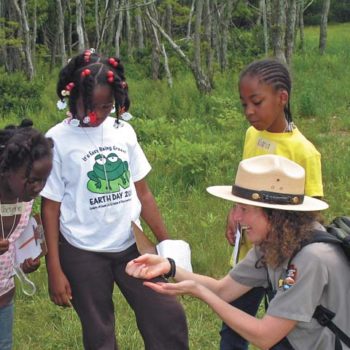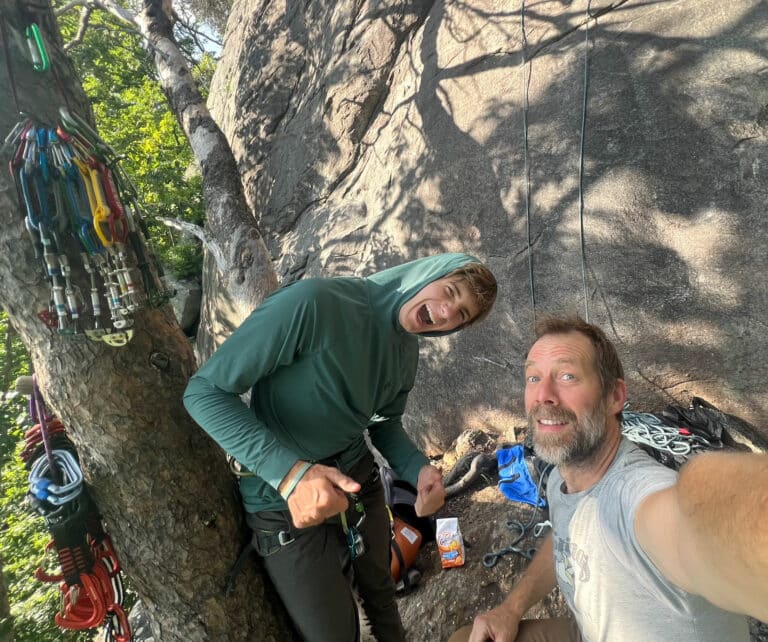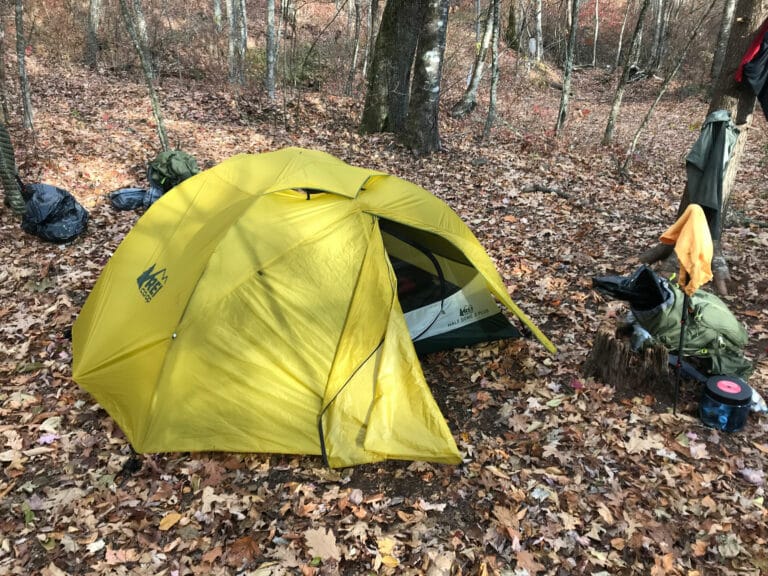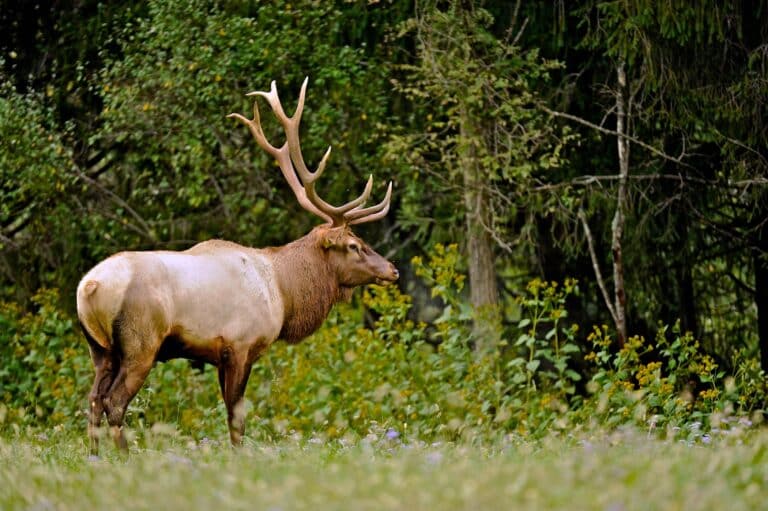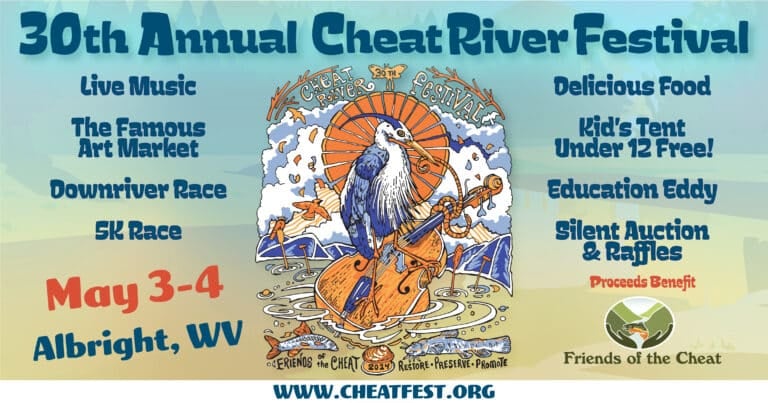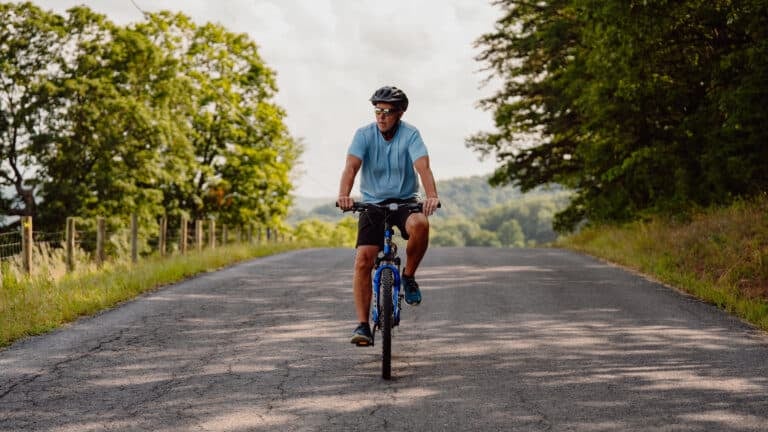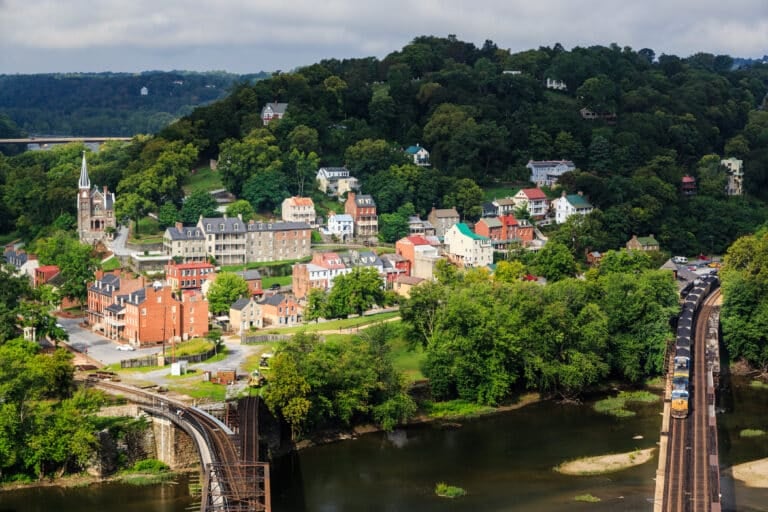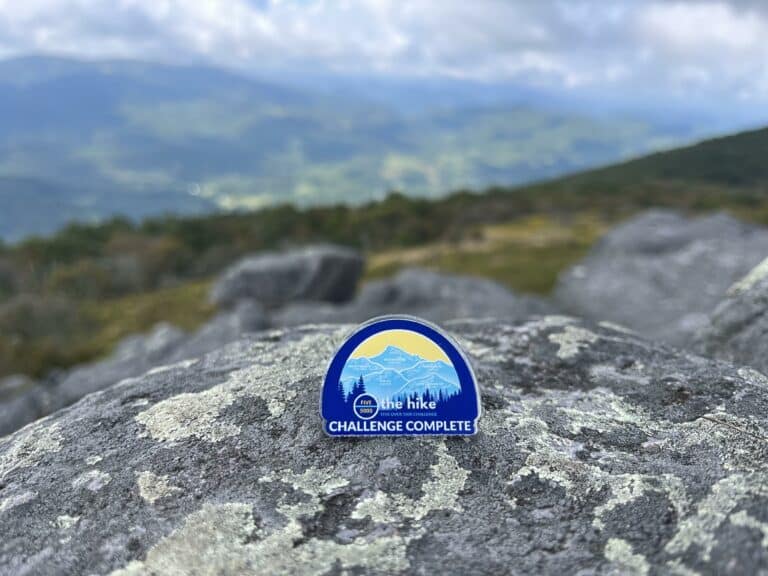“Your first summer in the park service is always a special one,” says Joy Lyons, who is now the chief operating office for Mammoth Cave National Monument. But 29 years ago, she spent her summer carpooling with several other seasonal park service employees, one of whom she eventually married. They shared a kiss during a blackout on a cave tour.
“When the blackness engulfed us, we couldn’t find each other,” she recalls. “I leaned into him and somehow we found each other, both of us in our Stetson hats. I never go through that part of the cave without thinking of that day.”
For five years, Lyons and her husband lived within the park, and a ferry across the Green River was the only way to reach it. After the last ferry, the park was quiet and mostly empty.
“There wasn’t a whole lot going on at night in the park,” Lyons says. “That’s probably how our first daughter got created.”
Like many rangers, Lyons stumbled into her career with the park service. Her college roommate brought home the application and said, “I’m applying to Mammoth Cave this summer. Want to come with me?” As it turned out, Lyons got the job and her roommate didn’t.
Karen Beck-Herzog also didn’t expect to be a park ranger. Initially she was working long hours in a finance career. While she was on vacation in Acadia National Park one summer, she noticed a quality in the park rangers that she lacked: joy in her profession. “The rangers there were so passionate. And I wanted that level of passion that they had. I wanted to wake up each day and know I was doing something important, protecting something.” A year later she began working for the Park Service, and that’s where she’s been ever since, now serving as management assistant at Shenandoah National Park.
Behind the Badge
While working as a ranger may sound like a dream job, it is not without its challenges. Brad McDougal, a supervisory park ranger who oversees law enforcement at Mammoth Cave, says his job includes everything from patrolling roads to search and rescue efforts in the backcountry.
“I come into work every day and there’s always something new,” says McDougal. And by “something new,” McDougal is referring to the wide array of criminal activity that occurs in the park. There are more common crimes resulting from accident or bad judgment—car accidents, disorderly conduct, public intoxication. Then there are some more severe and intentional crimes—arson, theft, assault, wildlife and plant poaching, drug trafficking.
“Ninety-nine percent of people who come to the park come to enjoy themselves and get in touch with nature,” he says. “The other one percent come here with less than the best intentions.”
That one percent includes people who use the park as a place to grow marijuana or make meth. “Some people see parks as an area to whip up a quick batch of meth. Then they dump their trash and toxic byproducts on the side of the road or at a campground,” McDougal explains, which can be dangerous to the public and to wildlife.
Fortunately, most of the misbehavior McDougal encounters is less dramatic. A common problem is noise violations at campgrounds after quiet hours, which sometimes happens when campers have had a little too much to drink. “We always try to get voluntary compliance. If they say they’re going to quiet down, we’ll keep an eye on them. But if we come back and they’re not complying, we’ll put them in the patrol car and take them to jail.” Annual arrests vary widely in number, McDougal says, but most of them are for public intoxication, disorderly conduct, or driving under the influence—infractions that carry up to six months in prison and a $5,000 fine.
Nature Versus Nurture
“The reason I became a park ranger is because I enjoy working with people outdoors and meeting the public on the trail,” says Laura Buchheit, an education specialist in Shenandoah National Park. “But as I’ve spent more time in the Park Service, I spend increasing amounts of time inside at a computer.”
Part of that, she admits has nothing to do with her job or the National Park Service. “I think as a society we’re relying more on computers. When I started with the Park Service, we didn’t have one computer. Now every single one of us needs to have access to a computer to keep up with what’s happening, to keep in touch with others. I think it’s one of those necessary evils.”
She believes technological advances have affected the general public even more significantly. “Technology is keeping more people indoors, making them more tentative about being outside. It’s a challenge for the national parks to stay relevant to changing society.”
Joy Lyons agrees. “There are now so many things out there competing for people’s recreational dollars. Now shopping is a recreational activity.” More people can afford to travel outside of the U.S. She also feels that kids are raised a little differently these days—they aren’t constantly exposed to the outdoors anymore.
“Kids would rather watch a DVD than go outside and get dirty,” adds Joe Yarkovich, a wildlife researcher at Great Smoky Mountains National Park. Yarkovich lives within the park, in a house in the Cataloochee Valley that has no telephone.
“Not only does ‘nature deficit disorder’ have a huge impact on personal development, it also has an impact on the parks. If the next generation grows up without an interest in them, they’re going to disappear.”
Still, park rangers remain committed to protecting national parks for future generations. Forty percent of Shenandoah is federally designated wilderness, meaning land that cannot be developed and should remain as natural as possible. Buchheit says that wilderness is a unique part of America’s heritage that she hopes Americans will continue to explore.
“I want to make sure every American has the opportunity to connect with their public lands and understand what that means to our country. I also try to educate the public about what they can do to help take care of the public lands that belong to them.”
It inspires her to see families visit Shenandoah with their children who, she observes, could be the next generation of park rangers.
Mind Your Tongue
Although few employees are willing to delve into the negative aspects of their job, Buchheit recalled an episode from the beginning of her park career that demonstrates the limitations of being a government employee.
“The very first evening program I put together and presented to the public was on Native Americans of the park. One of my supervisors observed the program, and afterward, he reminded me of my position working for the federal government—and that I needed to be aware of what I was saying in that room….I may have dwelt more on disrespect and disregard of the Native American community than may have been appropriate given my position working for the government.”
Buchheit classifies her supervisor’s reaction not as criticism but as a “gentle reminder that was presented in such a way as to be supportive.” The emphasis, she says, was on encouraging her to continue to develop her program further, “to research and present multiple perspectives.”
On the record, rangers repeatedly emphasize the positive about their jobs. One ranger asked that any negative-sounding comments be made to sound more positive.
Anonymously, rangers observe several problems with the Park Service: massive bureaucracy, a lack of women and minorities, and incompetence among park supervisors.
One ranger said his supervisor at the park service didn’t really know much about the resources of the area, and that he and other interns were asked to monitor certain species in a way that disturbed their habitat. They also were asked to collect data that was never used. He claims that they were asked to do these things so that it looked like the supervisor was getting things done. While there was a time when he was considering a career at a government agency, he says that his experiences “soured” him on that possibility.
Charlotte Fries was also disillusioned by her 12 years working as an interpretive park ranger at Cumberland Island National Seashore in the southeast corner of Georgia.
“It started out as a really wonderful experience, and it still could be if you could get rid of the politics.” By politics, Fries is referring in part to Georgia Congressman Jack Kingston, who sneaked a backdoor deal through Congress that dismantled Cumberland Island’s Wilderness and mandated even more vehicle tours on the island. Fries discussed the effects of this legislation on the national seashore with some visitors—among them a member of Kingston’s staff.
“I didn’t say anything that wasn’t true. But we are not supposed to be political—we’re not supposed to express our opinion.” Although no severe punishment was inflicted upon Fries, she had to watch her words more carefully afterward.
Because of episodes like these, Fries says Park Service employees “are afraid to stick their neck out and make an unpopular decision, even if it’s in the best interest of the park or the resources.” Most people in the Park Service are more worried about preserving their careers, which are increasingly affected by political maneuvering.
This paranoia has evolved, in part, because of a significant change in the way the NPS is operated. In the early days of the Park Service, the director remained in office regardless of who was president. But now the NPS director changes with each administration, which means that alliances, favors, and popularity are much more important than they used to be.
“Now, Congress gets involved with every little decision they shouldn’t be involved in. It’s not the park service we used to know and love. But we just have to work with what we’ve got.”
Despite the frustrations, Fries said she loved her job and loved Cumberland Island. She believes the government headaches might be a worthwhile concession to make if what you want is to spend your life working for the natural places of you love.
Buchheit conceded that “bureaucracy is a reality” and that “politics is on the public agenda and in everyone’s mind,” but then quickly reiterated that the mission of the National Park Service is to protect public lands. “I work for an agency whose mission I believe in. We can say we work for the government, but really we work for the public.”


